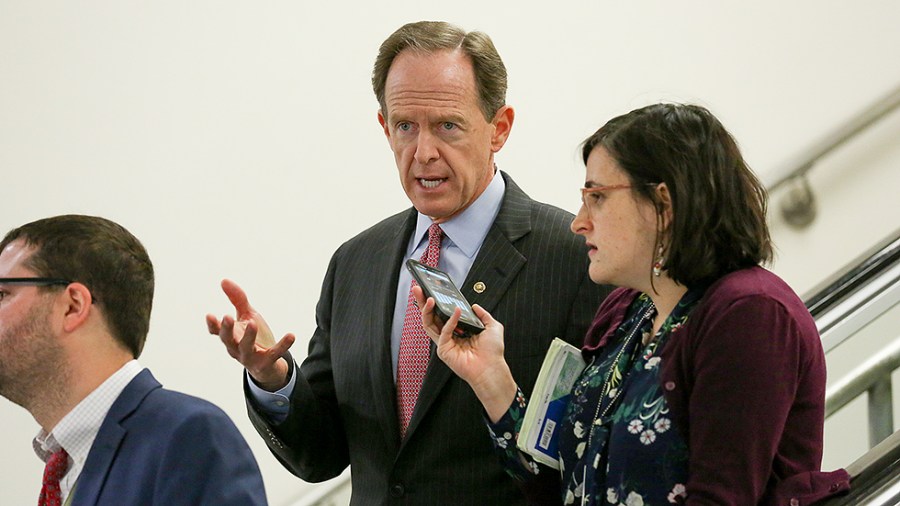A bipartisan group of senators is introducing gun safety legislation aimed at bolstering information-sharing between federal and state law enforcement following the Parkland, Fla., mass shooting.
The bill, known as “lie and try” legislation, would require federal officials to notify state law enforcement within 24 hours of when an individual prohibited from buying a gun tries to purchase a firearm and fails their background check.
“By ensuring that state and federal law enforcement are working together to prevent those who shouldn’t be able to buy a gun from getting one, we can make our communities safer,” Sen. Christopher Coons (D-Del.) said in a statement.
{mosads}Sen. Pat Toomey (R-Pa.) added that lying about your background when trying to purchase a gun is “a federal felony and it goes almost entirely unprosecuted now.”
Florida Sens. Marco Rubio (R) and Bill Nelson (D) — who have been in the national spotlight since last month’s shooting, as well as Sens. John Cornyn (R-Texas), Tammy Duckworth (D-Ill.), Lindsey Graham (R-S.C.) and Claire McCaskill (D-Mo.), are also backing the legislation.
Flagging the attempted purchases, according to the senators, would allow state officials to investigate and potentially prosecute the individuals, as well as “keep an eye on” potential future criminal activity.
The legislation also requires the Department of Justice to publish an annual report with statistics about its prosecution of background check denial cases.
“The NICS (National Instant Background Check System) Denial Notification Act would not only require federal authorities to flag background check denials for state-level authorities, it would also hold these federal officials accountable,” Rubio said in a statement.
The legislation comes in the wake of the mass shooting at Marjory Stoneman Douglas High School, where 17 people were killed.
Despite pressure from Trump and Florida students, who have blanketed the media since the shooting, Congress’s guns debate appears to have stalled.
Lawmakers have introduced, or floated, a flurry of new legislation after the shooting. But none of the bills appear to yet have the 60 votes needed to pass the Senate or majority support in the House.
